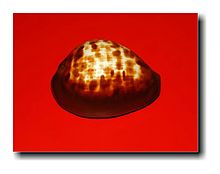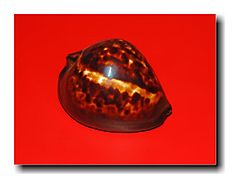- Zoila decipiens
-
Zoila decipiens A lateral view of a shell of Zoila decipiens from NW Australia. Anterior end towards the right. Scientific classification Kingdom: Animalia Phylum: Mollusca Class: Gastropoda (unranked): clade Caenogastropoda
clade Hypsogastropoda
clade LittorinimorphaSuperfamily: Cypraeoidea Family: Cypraeidae Subfamily: Bernayinae Genus: Zoila Species: Z. decipiens Binomial name Zoila decipiens
Smith, 1880Synonyms - Cypraea decipiens E. A. Smith, 1880
Zoila decipiens, common names the "humpback cowry" or "deceptive cowry", is a species of sea snail, a cowry, a marine gastropod mollusk in the family Cypraeidae, the cowries. This shell got its Latin name decipiens, meaning deceiving, from the fact that its damaged holotype was wrongly classified as Zoila thersites.
Contents
Description
These quite uncommon shells reach about 32–70 millimetres (1.3–2.8 in) of length. The shell is rather heavy, its shape is globular, almost inflated. Dorsum is distinctly arched. Its color is pale brown and more or less densely covered with brown irregular dark brown spots, while the dorsal line is lighter and usually clearly visible. Dorsal surface is separated from the edges by a dark brown frame. The base is dark brown and almost flat, with angled edges. The mouth is narrow, the short teeth are darker than the base and are present on both lips.
Distribution
This endemic species occurs in the sea along North West Australia. The shells have been most frequently found by divers from an area SW of Broome, (Australia).
Habitat
These large colourful cowries live in cold deep water, feeding on sponges in crevices and rocks at a maximum depth of 60–70 metres (200–230 ft), but they are more usually found at a depth of 15–35 metres (49–115 ft).
Subspecies
- Zoila decipiens decipiens Smith, 1880
- Zoila decipiens suprasinum Lorenz, 2002
References
- Lorenz F. & Hubert A. (2000) A guide to worldwide cowries. Edition 2. Hackenheim: Conchbooks. 584 pp
External Links
This Cypraeidae-related article is a stub. You can help Wikipedia by expanding it.


